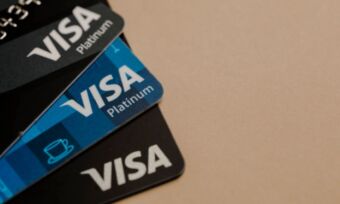Do ‘no credit check’ credit cards exist in Australia?
In Australia, lenders are legally required to run a credit check before approving any credit product, including credit cards. This forms part of Responsible Lending rules, which mean providers must check your financial situation and ensure you can afford to repay what you borrow. While you might see terms like “guaranteed approval” or “no credit check,” these are uncommon and can be misleading—as lenders still need to review your credit history before giving the green light.
Why do lenders do a credit check when you apply for a credit card?
When applying for any ‘credit product’ in Australia – which includes products such as a home loan, car loan and credit card – lenders have to follow a set of rules that are designed to protect borrowers from financial strife. These Responsible Lending Laws state that to keep their credit licence, companies have to:
- make “reasonable inquiries about a consumer’s financial situation, and their requirements and objectives”
- take “reasonable steps to verify a consumer’s financial situation” – which means doing a credit check in most cases
- make an “assessment about whether the credit contract is ‘not unsuitable’ for the consumer”.
The laws outline other checks and balances that the lender has to take depending on the type of credit product, its complexity and any special barriers the applicant faces to understanding the product or what it could mean to their finances, among other factors.
What can I do to improve my chances of credit card application approval?
If you have no credit history, or a poor one, it doesn’t mean that your credit card application will be automatically rejected. There are things you can try which might improve your credit score, which could improve your chances of being approved.
Depending on your financial situation and your credit history status, here are a few options to increase your chances of approval.
How to make credit card approval easier
- Check your credit score: You can check your credit history online, which will give you an indication of what a lender might see when reviewing your application. You may also be able to correct any errors you see in your credit report.
- Choose the right card for you: Some credit cards have higher requirements than others, and a failed application can negatively affect your credit score, so try to only apply for cards that are right for you. Check the card’s eligibility criteria and Target Market Determination for details on suitability.
- Show you will be a responsible borrower: To increase your chances of being approved, be prepared to tell the provider why you chose that card and show evidence that you’re able to pay back whatever you borrow on it.
- Only apply for one credit card at a time: As credit card applications are recorded on your credit file, multiple applications, and rejections, are likely to be viewed negatively by a credit card company, if you can’t explain why you applied for a specific card, and how your circumstances have changed since you applied.
- Ask your bank first: You might like to send an enquiry to your bank or financial institution about their products, and ask for an indication of your likelihood of being approved. The Responsible Lending Laws state that, when it comes to the approval process, “fewer steps may be reasonable” if a person has a strong savings history or if the lender has had previous “dealings with the consumer and reasonably consider they have an appropriate level of experience or understanding in relation to financial matters”.
No credit history credit card application
- Compile evidence to show your financial stability: If you don’t have a credit file, you may need to tell the credit card provider about your current financial situation and provide details about your history with money. This might include financial records such as tax returns and assessments, bank statements, and proof of budgeting.
- Consider building a credit history: While it won’t produce instant results, you may want to consider starting to build a credit history. For example, you could consider getting a postpaid phone plan or paying household bills in your name.
Poor credit history credit card application
- Compile proof that your financial situation has changed: If you have a few blemishes on your credit file, it may help to show the credit card provider how your situation has changed. The responsible lending laws state: “The responsible lending obligations on their own should not have the effect that a consumer who has experienced repayment difficulty in the past cannot get an appropriate loan.” This might, for example, include evidence of a new job, living situation or savings plan.
- Consider taking action to improve your credit score: There are a number of things that could help you to improve your credit score, such as paying bills on time consistently and reducing debt levels. Check your credit file to ensure that there are no errors, and, if so, ask them to be corrected. Keep in mind that it takes time to improve a credit score.
Alternative money lending for poor credit
If your credit score disqualifies you from getting a credit card, there may be other money lending options available to you.
- Secured personal loan. With this type of loan, you can borrow money by putting up an asset you own as collateral. However, keep in mind that if you default on your loan, your lender can repossess your asset to recoup the costs.
- No Interest Loans Scheme. The No Interest Loan Scheme is an initiative that aims to provide interest free loans to low-income Australians for specific purposes like household essentials and appliances.
- Buy Now Pay Later. These services let you make purchases to pay back in regular installments, typically with fees for late payments. While you’ll still be required to pass a credit check, you may find the requirements are lower than on a traditional credit card.
What can I do if my credit card application is rejected?
If your credit card application is rejected, you can ask the provider to give you “a written copy of the preliminary assessment or final assessment”, according to the responsible lending laws. This could help you to work out how to improve your chances of being approved for a credit card in the future. But remember, every credit card application is recorded on your credit file, and rejections could have a negative impact on your score.
Financial counselling is offered through selected government and not-for-profit community organisations, such as the National Debt Helpline (1800 007 007) or the Salvation Army. According to Financial Counselling Australia, financial counsellors don’t charge fees or receive any third party payments or commissions.








